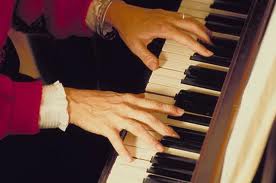The good news? There is some truth to the adage “practice makes perfect.” The bad news? In most cases, two thirds of all cases, according to researchers at Michigan State University, the adage is approximately one third truth and two-thirds fiction. A Michigan State news release reports that researchers analyzed 14 studies of chess players and musicians, looking specifically at how practice was related to differences in performance. Practice, they found, accounted for only about one-third of the differences in skill in both music and chess. The rest, says Michigan State University’s Zach Hambrick, is explained by intelligence or innate ability, as well as the age at which people start the particular activity. A previous study conducted by Hambrick suggested that working memory capacity – which is closely related to general intelligence – may sometimes be the deciding factor between being good and great. Wait, Hambrick also found more good news in his results: “If people are given an accurate assessment of their abilities and the likelihood of achieving certain goals given those abilities,†he said, “they may gravitate toward domains in which they have a realistic chance of becoming an expert through deliberate practice.†In other words, they won’t overreach. Read more from Michigan State.
news? There is some truth to the adage “practice makes perfect.” The bad news? In most cases, two thirds of all cases, according to researchers at Michigan State University, the adage is approximately one third truth and two-thirds fiction. A Michigan State news release reports that researchers analyzed 14 studies of chess players and musicians, looking specifically at how practice was related to differences in performance. Practice, they found, accounted for only about one-third of the differences in skill in both music and chess. The rest, says Michigan State University’s Zach Hambrick, is explained by intelligence or innate ability, as well as the age at which people start the particular activity. A previous study conducted by Hambrick suggested that working memory capacity – which is closely related to general intelligence – may sometimes be the deciding factor between being good and great. Wait, Hambrick also found more good news in his results: “If people are given an accurate assessment of their abilities and the likelihood of achieving certain goals given those abilities,†he said, “they may gravitate toward domains in which they have a realistic chance of becoming an expert through deliberate practice.†In other words, they won’t overreach. Read more from Michigan State.
